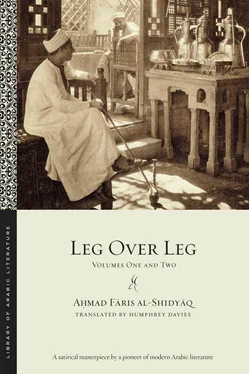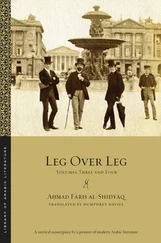or a murtabaʿ ,
“a location where they 560reside at the time of the autumn rains”
or a maṣīf or mashtā ,
[“a summering or a wintering spot”] “too well known to require definition”
or a daskarah ,
“a building like a palace with houses around it, or…” 561
or a mashraqah ,
“a place to sit in the sun in winter”
2.14.36
or a maḍḥāh ,
[“a land of sunshine”] “a land that is maḍḥāh is one that is sunny almost all the time”
or a ẓullah ,
“something like a portico in which one finds shelter from the heat and the cold”
or a mashrabah ,
“a chamber, or upper chamber, or portico”
or a suʿnah ,
“a rooftop shelter from the heat and humidity, or any shelter whatsoever”
or a miẓallah ,
“the larger kind of tent”
or a sābāṭ ,
“a roofing between two houses with a street beneath it”
or a ʿirzāl ,
“a small house used for the king when he is at war, or…” 562
or a kinn ,
“a house”
or a qayṭūn ,
“a closet”
2.14.37
or a sarab ,
“a subterranean excavation”
or a dīmās ,
“a kinn , or a sarab , or a bathing chamber”
or a burj ,
[tower] “too well known to require definition”
or a ṣahwah ,
“a tower on top of a hill”
or a ṣarḥ ,
“a palace, or any tall building”
or a ʿaqr ,
“a high building”
or a ṭirbāl ,
“any tall building”
or a azaj ,
“a kind of building” 563
or a īwān ,
“a large portico, like the azaj ”
or a riwāq ,
“a house like a fusṭāṭ , or a roof at the front of a house [i.e., an arcade]”
2.14.38
or a ajam ,
“any square, roofed house; spelled ujum it means
‘a fortress’”
or a kaʿbah ,
“a room, or any square house”
or a uṭum ,
“a palace, or any fortress built of stone, or any square, roofed house”
or a washīʿ ,
“a trelliswork structure constructed for the chief in a camp”
or a sunnayq ,
“a house plastered with gypsum”
or a jawsaq ,
“a palace”
or a dawshaq ,
“a house that is neither large nor small, or a huge house”
or a quhqūr ,
“a tall stone structure”
or a bughbūr ,
“a stone on which an offering is sacrificed to an idol”
or a zūr ,
“a gathering place for singing”
2.14.39
or a budd ,
“the house of an idol”
or a zūn ,
“a place where idols are gathered, erected, and adorned”
or a masjid ,
[“mosque”] “too well known to require definition”
or a kanīsah ,
[“church” or “synagogue”] “too well known to require definition”
or a fuhr ,
“the midrās (‘midrash’) of the Jews in which they gather on their festival, or…” 564
or a midrās ,
“a place in which the Qurʾan is recited; origin of the midrās of the Jews”
or Kawkabān,
“a castle in Yemen whose inside was studded with rubies so that it shone like a star”
or al-Jawsaq,
“a house built for al-Muqtadir 565inside the caliph’s house in which was a pool of lead 566thirty cubits by twenty”
or Qaṣr al-Nuʿmān,
[the Palace of al-Nuʿmān] 567that was built for him by al-Sinimmār; the latter was an artisan who built a palace for al-Nuʿmān, son of Imruʾ al-Qays; when he finished it, the latter threw him from its highest point so that he could never build another like it; or he was a slave of Uḥayḥah 568who built a castle; when he finished, Uḥayḥah asked him, “Have you made it strong?” and he responded, “I know a stone in it which, if pulled out, will lead to its utter collapse” and Uḥayḥah asked him which stone it was, so he showed it to him, and then Uḥayḥah pushed him off the castle and he was killed
or al-Jaʿfarī,
“a palace of al-Mutawakkil’s 569close to Surra Man Raʾā”
2.14.40
or al-Mārid,
[“the Defiant”] “a castle at Dawmat al-Jandal” 570
or al-Ablaq,
[“the Piebald”] “a castle at Taymāʾ, one of two that al-Zabbāʾ tried and failed to take, leading her to say, ‘al-Mārid defied me, and al-Ablaq was too strong’”
or Ṣirwāḥ,
“a castle built by the jinn for Bilqīs”
or Dār al-Khayzurān,
“at Mecca, built by Khayzurān, 571the caliph’s slave girl”
or Qaṣr Bahrām Jūr,
“made from a single rock, near Hamadhān”
or Qaṣr Ghafrāʾ,
“in Syria”
or al-Badīʿ,
“a large building of al-Mutawakkil’s, at Surra Man Raʾā”
or Zuʿayrah,
“a castle close to al-Karak”
or Qaṣr ʿIsl,
“at Baṣrah”
or al-Nadd,
“a castle in Yemen”
2.14.41
or al-Ghufr,
another castle there
or Samadān,
another castle there, large
or al-Shakhab,
another castle there
or Tharabān,
another castle there
or Hirrān,
another castle there
or Shuwāḥiṭ,
another castle there
or al-Mawhabah,
another castle there
or al-Ẓafīr,
a castle east of Ṣanʿāʾ
or Lasīs,
“a castle in Yemen”
or al-Nujayr,
“a castle close to Haḍramawt”
or Ghumdān,
“a palace in Yemen built by Yashrukh, with four faces, one red, one white, one yellow, and one green, inside of which he built another palace with seven roofs, each roof forty cubits distant from the next”
he still wouldn’t stop yelling, “A woman! A woman! Who will get me a woman?” and “No life without a woman!” and if you set him down in
2.14.42
Shiʿb Bawwān,
“one of the four paradises”
or Ṣanʿāʾ,
“a town in Yemen with many trees and much water resembling Damascus”
or al-Sughd,
“pleasure gardens and places filled with fruiting trees, in Samarqand”
or al-Shaʿrān,
“a mountain close to Mosul, one of the mountains most overflowing with fruits and birds”
or al-Wahṭ,
“an orchard, or a property belonging to ʿAmr ibn al-ʿĀṣ, 572three miles from Wajj, 573that took a million pieces of wood to trellis, each piece costing one dirham”
or Balansiyyah,
[Valencia] “A town in eastern al-Andalus, surrounded by gardens where all one can hear is water gushing and birds caroling”
or Mursiyyah,
[Murcia] “An Islamic town in the Maghreb, with many parks and orchards”
or Thamānīn,
[literally, “Eighty”] “A town built by Nūḥ, peace be upon him, when he left the ark with eighty souls”
or Jābalaṣ,
“a town in the Maghreb, beyond which nothing human lives”
or al-Rāhūn,
“a mountain in India, on which Adam, peace be upon him, fell” 574
or al-Jūdī,
“a mountain in al-Jazīrah, 575on which the ark of Nūḥ came to rest”
or Qāf,
“a mountain that surrounds the earth, or one made of emeralds, a vein of which is present in every town and on which is an angel to whom God, should He wish to destroy a people, gives an order, which the angel carries out, causing them to be swallowed up by the earth”
Читать дальше












